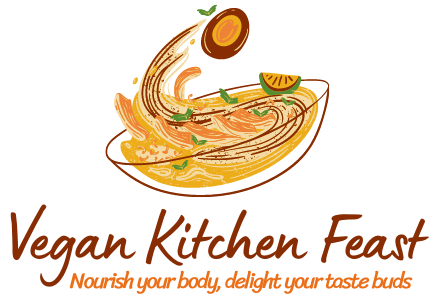
When I talk about plant-based eating, I’m referring to a diet that emphasizes foods primarily from plants. This includes not just fruits and vegetables, but also nuts, seeds, oils, whole grains, legumes, and beans. It doesn’t mean you are never eating meat or dairy, but you are choosing more of your foods from plant sources.
In recent years, there’s been a noticeable shift towards plant-based eating. Perhaps you’ve seen more plant-based options popping up in grocery stores, or noted the increase in recipe blogs dedicated to this way of life. This trend isn’t just a passing fad; it’s supported by growing evidence of the health and environmental benefits that this dietary approach offers.
One of the most compelling reasons for this shift is the impact on gut health. A plant-based diet has been linked to improved gut flora, the community of healthy bacteria in your digestive system. This inner ecosystem plays a crucial role in how you absorb nutrients, which in turn affects your body’s immune response and inflammation levels. Ensuring that the gut is populated with beneficial bacteria can help you get the most from the foods you eat and support overall health.
The Gut-Health Connection: Unlocking Nutrient Absorption
The gut is more than just a pathway for food to travel through your body. It’s a complex system that plays a crucial role in your overall health. Think of your digestive tract as a control center that communicates with the rest of your body. It decides which nutrients are absorbed, which toxins are filtered out, and even helps regulate your immune response.
When it comes to the relationship between diet and gut health, plant-based foods come out on top. Fruits, vegetables, whole grains, nuts, and seeds are rich in prebiotic fibers. These fibers aren’t just roughage; they feed the beneficial bacteria in your gut. And when these microbes are well-fed and diverse, they work effectively to help you absorb more of the nutrients from your food.
Why does nutrient absorption matter? When your body can efficiently soak up vitamins, minerals, and antioxidants, it strengthens your immune system. A robust immune system is your best defense against illnesses and helps manage inflammatory responses in the body. By eating a high-fiber, plant-based diet, you’re essentially giving your internal defense team the tools it needs to protect you.
Inflammation is the body’s natural response to injury or infection, but when it becomes chronic, it can lead to diseases. A diet rich in plant-based foods has been shown to reduce markers of inflammation. This is due, in part, to the high antioxidant content found in plants, which neutralizes free radicals that can cause inflammation and cellular damage.
Harnessing the Power of Fiber: Cholesterol, Blood Sugar, and Bowel Management
Dietary fiber, often heralded as a cornerstone of good health, has far-reaching benefits. Found predominantly in fruits, vegetables, legumes, and whole grains, fiber is an essential part of a plant-based diet.
For those proactive about cardiovascular health, fiber plays a critical role in managing cholesterol levels. Soluble fiber, the type that dissolves in water, binds to cholesterol particles and helps remove them from your body. By including fiber-rich plants in your diet, you can effectively lower your low-density lipoprotein (LDL), commonly known as ‘bad’ cholesterol.
Stabilizing blood sugar is another benefit that cannot be understated. Fiber slows the absorption of sugar, helping to prevent spikes in blood glucose levels after meals. This can be crucial for managing conditions like diabetes and for maintaining consistent energy levels throughout the day.
Regarding bowel management, fiber is your steadfast ally. It increases the weight and size of your stool and softens it. A bulky stool is easier to pass, decreasing your chance of constipation. If you have loose, watery stools, fiber can also help to solidify them because it absorbs water and adds bulk to the stool.
To reap these life-enhancing benefits, I encourage making deliberate choices to include more high-fiber plants in your daily meals. Think beans in your tacos, berries in your morning oatmeal, or a crisp apple as a snack. It’s these small steps that can lead to BIG CHANGES in your health.
Embracing Plant-Based Recipes: Simple Steps to a Healthier You
You’ve seen how a plant-based diet can positively impact your gut health, cholesterol levels, and even blood sugar stability. It’s clear that there’s a wealth of benefits to be found in these nutrient-rich foods. But you may wonder, ‘How do I make the switch to more plant-based eating?’ It’s easier than you might think.
Begin by introducing one plant-based meal into your weekly routine. It’s a small step that can lead to significant changes. Soon, you might find that searching for new recipes and experimenting with different ingredients becomes part of your routine.
Start with familiar foods like beans, lentils, whole grains, and a variety of fruits and vegetables. These are the building blocks of a plant-based diet and they’re likely items you already enjoy. From hearty lentil stews to refreshing salads packed with greens and seasonal fruits, your options are endless and exciting.
And don’t forget about plant-based proteins like tofu and tempeh. Incorporating these into your diet can be as easy as swapping them in for animal proteins in your favorite recipes. This change not only improves your health but also introduces you to a whole new world of flavors and textures.
Remember, balance and variety are key to any diet. A rainbow of plant-based foods ensures you’re getting a wide range of nutrients. Mix things up, and your meals will always be something to look forward to.
As you embrace this journey, listen to your body and adapt as needed. Everyone’s experience is unique, and it’s important to find what works for you. Transitioning to a plant-based diet is not about restriction; it’s about discovering bountiful and satisfying foods that also contribute to your wellness journey.
